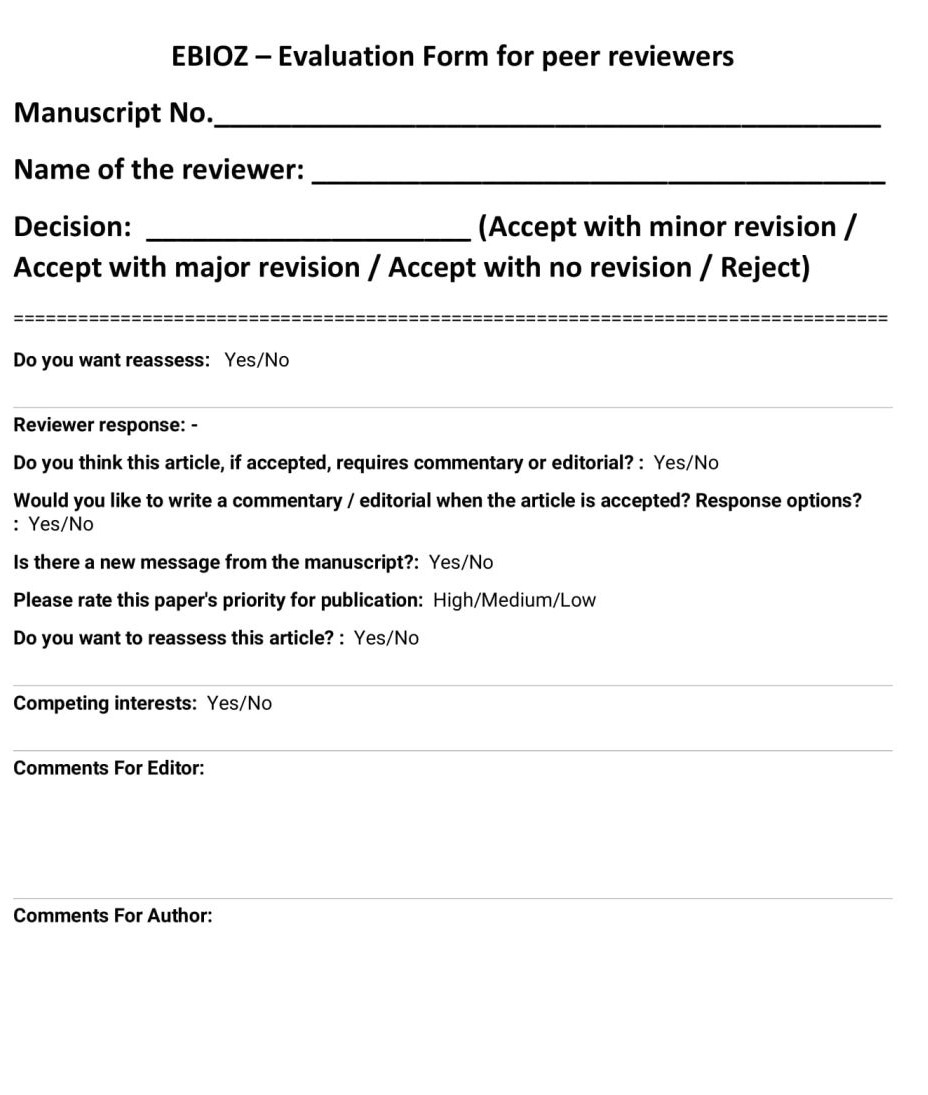Guidelines for Reviewers when Reviewing Manuscripts
These guidelines encourage reviewers to identify misconduct, raise concerns with the editor, and maintain the confidentiality of the manuscript.
- Reviewers play a crucial role in upholding the integrity of the scholarly record. They should approach the manuscript with a positive and impartial mindset, aiming to facilitate effective and accurate scientific communication. If a reviewer believes they cannot assess an article impartially, they should promptly return it to the editor with an explanation.
- Reviews should be completed in a timely manner (within 2-3 weeks). If a reviewer anticipates being unable to meet the specified deadline, they should inform the editor.
- Reviewers are requested to evaluate the manuscript's quality and provide a recommendation to the external editor (accept, revise, or reject). Invited reviewers should:
- Accept or decline invitations promptly based on the manuscript's title and abstract.
- Suggest alternative reviewers if they must decline.
- Request a deadline extension if more time is needed for comprehensive feedback.
- Reviewers should disclose any potential conflicts of interest that could introduce bias for or against the paper or authors. If unsure about a potential conflict, reviewers should contact the journal's Editorial Office.
- Reviewers should remember that their comments may be included in the decision letter to the author, aiding them in improving the manuscript. When providing feedback:
- Read the entire article, including figures and tables, if available.
- Critically analyze the article as a whole and specific sections.
- Offer detailed comments to ensure authors understand and address the raised points.
- Maintain a neutral tone and provide constructive criticism.
- Reviewers are not expected to correct grammar but may help if desired.
- When reviewing a manuscript, consider various aspects:
- Importance of the question or subject studied.
- Scientific reliability.
- Originality.
- Appropriateness of approach and experimental design.
- Relevance and credibility of results.
- Soundness of conclusions and interpretation.
- Relevance of the discussion.
- Currency and relevance of references.
- Suitability for the journal and overall recommendations.
- Ethical aspects.
- Overall presentation, including writing style and clarity.

